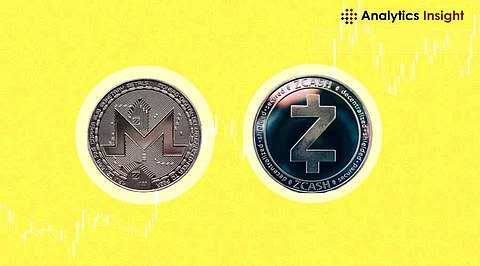

The recent increase in popularity of cryptocurrency has raised the need for privacy. Most blockchain networks allow transparency and decentralization, but most of them lack proper privacy features, thereby making their users prone to tracking and surveillance. This is where privacy coins come in. This article looks at some of the best privacy-based cryptocurrencies like Monero and Zcash and delves into some other alternatives which ensure that user anonymity is maintained.
Privacy coins are digital currencies that are developed to increase user anonymity and transaction confidentiality on the blockchain. Unlike Bitcoin or Ethereum, where transactions are recorded on a public ledger, privacy coins obscure the sender, receiver, and transaction amount to varying degrees. This means third parties cannot trace or monitor financial activities, making privacy coins ideal for users seeking enhanced financial privacy.
Monero, or XMR for its short form, is one of the safest and private cryptocurrencies in circulation today. Monero was launched in 2014, and it works by keeping the details involved in the transactions masked through an integration of technologies. Its landmark feature is Ring Signatures that combine a user's transaction with others to render the real identity of the sender unknown; in doing so, the original source of the transaction cannot be traced.
Monero uses Stealth Addresses, meaning that it has one-time addresses per transaction; hence, no one is able to trace an individual's history of transactions. RingCT, or Ring Confidential Transactions, hides the amount of cryptocurrency being transferred in this wallet. All these make Monero the most suitable option among all users seeking full anonymity for financial activities.
Monero has maintained a strong position in the market due to its commitment to privacy, often considered the gold standard in privacy coin technology.
Zcash (ZEC) is another prominent privacy coin launched in 2016. Zcash uses a different approach to privacy compared to Monero. It employs zk-SNARKs (Zero-Knowledge Succinct Non-Interactive Arguments of Knowledge), a cryptographic technique that enables fully private transactions without revealing any transaction details on the blockchain.
Zcash provides the user with the option of choosing between shielded and transparent transactions. In this respect, it enables transparent transactions similar to Bitcoin but, for anonymity, shields the amount of transaction and who is involved in transactions. This will give flexibility within Zcash in supporting users who may require different levels of privacy within different use cases.
Although Zcash has superior technology, the opt-in privacy feature has been largely condemned in the public domain, especially where most users favor transactions which are transparent. For its kind, Zcash remains one of the strongest competitors in the marketplace for those appreciating cryptography innovation and flexibility.
There have been numerous privacy coins over the years which each had its distinct way of addressing issues in matters of privacy and security.
For example, Dash is so often thought of as a coin of privacy when, in fact, it operates on a feature called PrivateSend that blends coins between parties, hindering the chances of tracing it. It lacks the much privacy centrism of either Monero and Zcash but still somewhat anonymous in nature.
But then again, tools like Tor and I2P have anonymity features, which enable the hiding of users' IP addresses, and they exist for XVG too. However, although it gives good security and anonymity particularly, Verge was in various controversies involving such cases, and adoption rates got influenced by these.
Horizen focuses on the aspect of privacy besides scaling up its capabilities with sidechains along with features of privacy. The sidechains with Zcash and the use of zk-SNARKs in keeping transactions away from public visibility while retaining privacy but then enabling interconnectedness in any network.
Different Privacy coins would provide different approaches toward providing privacy solutions. Depending on the number of users who want their transactions to be anonymous fully, their preferred needs would possibly be met by one category of privacy coin over others.
Although privacy coins are growing in popularity, they do come with several challenges. The biggest challenge remains regulatory scrutiny. Governments all over the world are now targeting cryptocurrencies, especially privacy coins, because of their link to illicit activities such as money laundering and tax evasion.
Other technical challenges include balancing privacy and scalability. Monero, for instance, prioritizes privacy and, thus, generates larger transaction sizes that can slow down the network. Zcash, which relies on zk-SNARKs, requires huge computational resources.
However, with time, privacy coins will evolve and improve scalability, security, and usability. The more people want privacy in financial transactions, the more high in demand the privacy coins are going to be.
The crypto space needs solutions like Monero and Zcash for persons looking to find financial privacy. Coins using strong cryptographic techniques ensure the anonymity and confidentiality of users during transactions. The list of regulatory challenges and technical hurdles is too long; however, the bright future for coins in case privacy becomes mainstream in this digital age.
